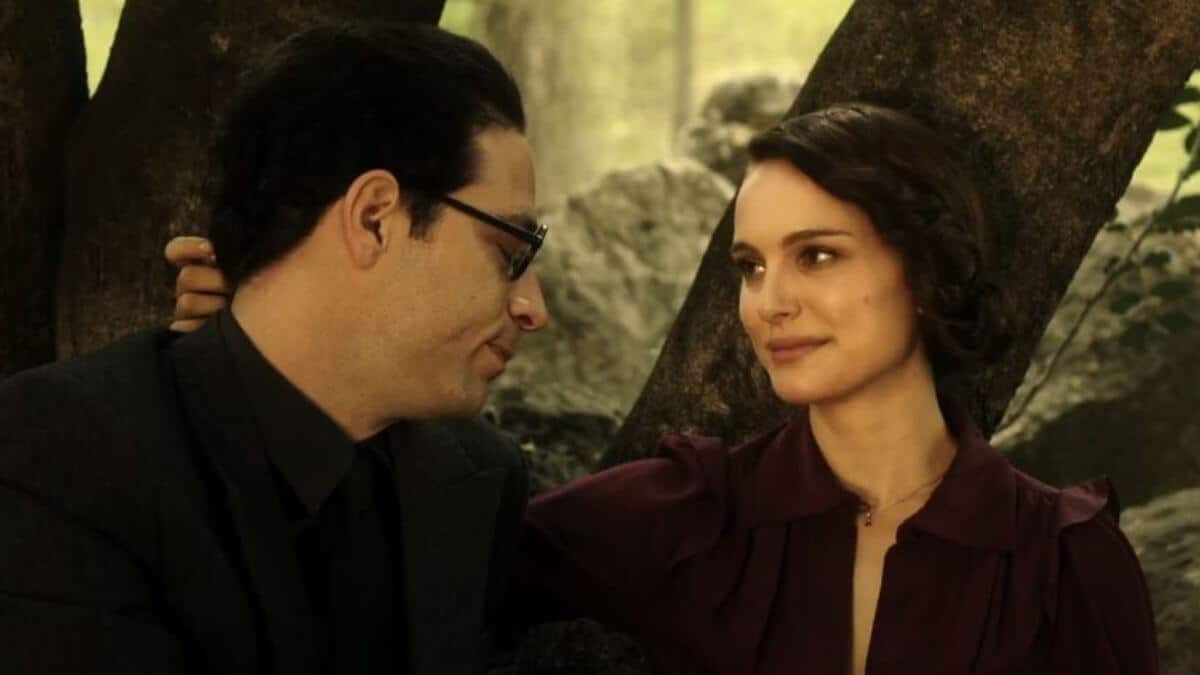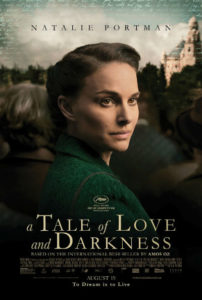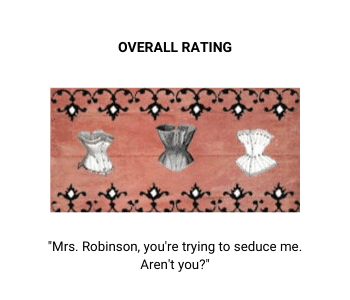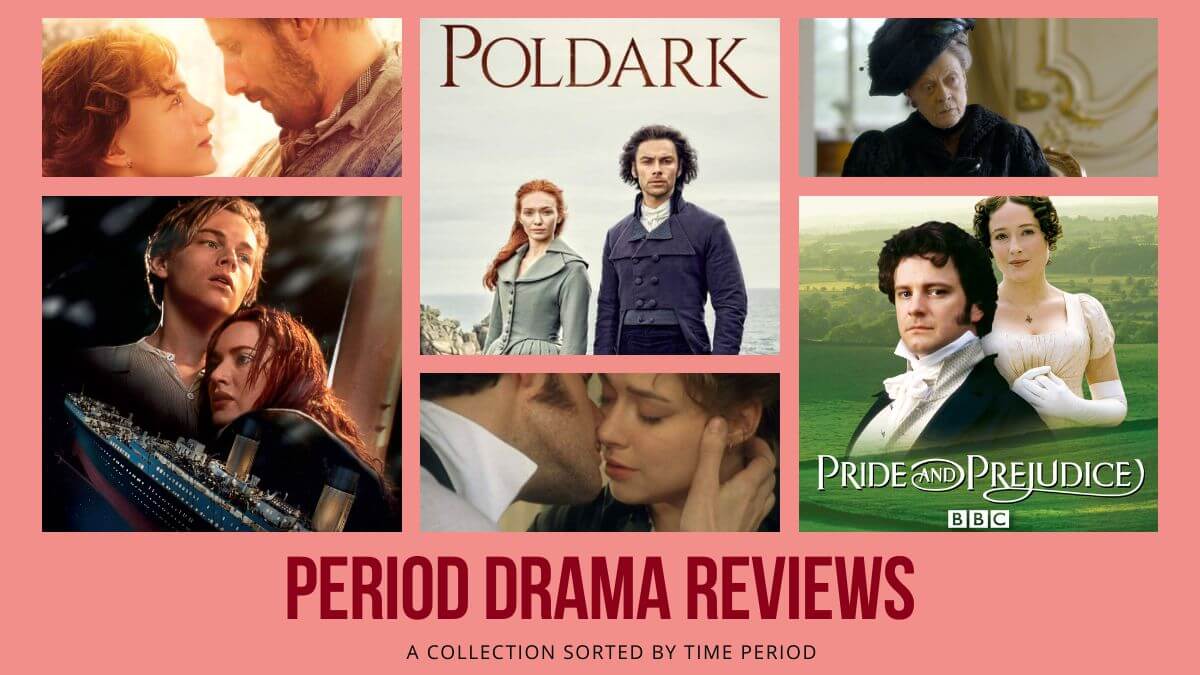A Tale of Love and Darkness is a film based on the book of the same name by Jewish author Amos Oz.

It is an autobiographical story about the author’s younger years growing up in Jerusalem in the years before and directly after the formation of the state of Israel.
Summary Of A Tale of Love and Darkness

Young Amos lives with his parents in Jerusalem during a tumultuous time. WWII had ended recently. Many Jews moved to the British-occupied area of Palestine, which is tenuously shared with Arab residents.
His mother, in particular, seems haunted by her past memories of the destruction of her privileged life in Poland. Amos’ mother, Fania, does her best to show her love to her son and husband, but those memories make it difficult for her to connect with them.
RELATED: Film Review: Memoirs of a Geisha -A Gorgeous Period Drama
While reconciling herself to her new and challenging present in Jerusalem, Fania shares stories, both fact and fiction, to help distract herself and her son from the struggle of their daily lives.
A TALE OF TALES
A Tale of Love and Darkness tries to tell several tales. At heart, it shares the memories the author has of his mother. Thus, it seems that her story is featured. However, because it is viewed through the eyes of the author, it is also the story of his childhood.
There is also the narrative of Jerusalem’s history and the founding and reclamation of the modern Jewish state of Israel. Although this tale was of greatest interest to me, it was also the weakest of the three.
While the history is alluded to and mentioned at various times throughout the film, unless the audience is very familiar with modern Jewish history, it is not enough to set the foundation of place and events that this film really needs to give the characters’ stories depth.
Because the narrator is young, we see the events of history and his family life through the eyes of a child. While I appreciate the innocence and the only thread of hope that it gives A Tale of Love and Darkness, it again detracts from the depth needed to understand his mother’s inner turmoil and outer actions. We can see and occasionally feel Fania’s pain and hopelessness, but we can’t really understand it, which does make her appear selfish at certain points.
RELATED | Jane Got A Gun: A Dark but Compelling Western Drama
At least, that is how it appears at first glance. However, upon deeper observation, looking back from the ending with hindsight vision, it can be argued Fania’s storyline is an unscientific study of the psychological effects of war and trauma and how it molds one’s soul into a new shape. How survivors choose to cope, and how its impact is unintentionally passed on to future generations.
Since this is an autobiographical tale, it doesn’t necessarily have a plot. Instead, the story strings together events and memories without a real purpose to tether them.
The mother’s habit of spinning tales as a method of distraction creates another point of interest, even if they tend to be as bleak as reality. However, though these stories don’t always seem to fit the moment, in the end, the connection between these disjointed tales is finally made and packs quite an emotional wallop.
HISTORY, PLEASE
This film is Natalie Portman’s directorial debut. I understand that she met with the author to secure film rights and fought to have it filmed in Hebrew. I appreciate her persistence, which adds to the film’s authenticity.
RELATED: Battle for Incheon: Operation Chromite Review -An Old Fashioned Historical War Drama
However, I really wish she had given more information on the time in which this film is set since most American audiences will not be familiar with the events in which this film is placed. Thankfully, I had recently watched the documentary Above and Beyond about the formation of the first Israeli Air Force, which also gives background on this period of history, so I knew a little more than some.
RECOMMENDATION
As you can surmise, I cannot say I enjoyed A Tale of Love and Darkness. I can handle bleak films with tragedy as long as there is a glimpse of hope and redemption. This film has none. But perhaps that is why it is worth watching. This is not just a story some one wrote in the comfort of a quiet room to entertain or sell for profit. This is someone’s truth and real-life experience.
Many Americans cannot and hopefully will not hope to fathom the danger, hardship, and tragedy of survival that many others around the world experience regularly. The founding of our own nation is so far back in history that we view it with pride and rose-colored glasses.
However, some nations, including the state of Israel, are fairly new and still remain in the memories of those who lived through the cost of establishing them. This is why, although this is not a comfortable film to watch, I still recommend that you watch it. Sometimes, it is good to expose ourselves to something outside the American worldview to try to understand a different perspective.
CONTENT NOTE: This film has been rated PG-13 for its implications of war violence. There are a couple of scenes of death that are fairly sanitized. There is a slight implication of an affair and the depiction of depression or melancholia.
WHERE TO WATCH: A Tale of Love and Darkness is currently streaming on several platforms, including Netflix, Amazon, and iTunes. It can also be purchased on DVD.
What are your thoughts on A Tale of Love and Darkness? Do you enjoy foreign historical films?



In a nutshell, this is a difficult period to write about (if done from a Jewish perspective) and impossible to film about. It happened to Otto Preminger almost half a century ago, when he tried to translate “Exodus” into film. The birth of Israel is a contentious subject.
I read the book, couldn’t say I enjoyed it, it was bleak, but I admired the prose and felt for the characters. Oz, a wonderful writer, is trying to exorcize his own traumatic childhood memories, but his narrative is also laced with historical allusions.
Natalie, G-d bless her, she looks so beautiful in the film, but I feel she tackled something too big for her to handle. She was born in Jerusalem, she carries an Israeli passport, she could be called Zionist, but foremost she is Miss Political Correctness therefore she doesn’t want to offend. The book is focused on the author and how he felt and perceived his childhood world. Natalie chooses to focus on Fania, her personal history, the Europe she left behind, her expectations of what her new land would bring her, and how, when her expectations fail, she finds refuge in her own tales. Losing contact with reality makes Fania innocent of whatever happens around her, That’s the reason why Portman couldn’t (most probably didn’t want to) include historical data. Whatever historical details take place in the film are mere background events for a woman who lives in her own private space.
Thank you for sharing your perspective. I have not read the book and I imagine that it would have given me a much better lens through which to view the film. Perhaps the film should have been clearer about its purpose and just stuck to one tale instead of trying to tell several.